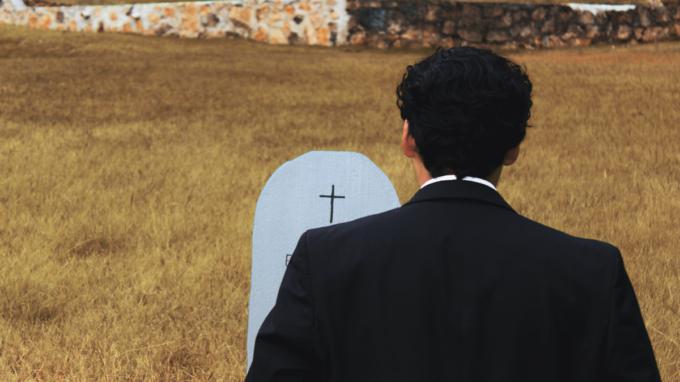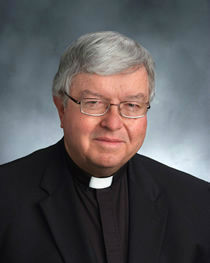
Faith
A person who has been away from regular church attendance could not, of course, receive holy Communion without going to confession first.

Doyle
Q. May a Mass of Christian burial be celebrated for a baptized person who has been, for many years, away from the Church? (East Springfield, New York)
A. Yes, absolutely. The Church's Code of Canon Law states, in fact, that every Catholic has the right to a Catholic funeral, and the wording of the canon is strong: "Deceased members of the Christian faithful must be given ecclesiastical funerals according to the norm of law" (No. 1176).
The few exceptions to that rule are stated specifically in a subsequent canon and include such categories as "notorious apostates, heretics and schismatics" and "other manifest sinners who cannot be granted ecclesiastical funerals without public scandal of the faithful" (No. 1184).
A person who has been away from regular church attendance could not, of course, receive holy Communion without going to confession first. But it is always possible that the deceased, in the privacy of his own conscience, may not have realized the gravity of his offense or may have expressed repentance and been reconciled to the Lord.
The Church's rule on funerals gives a person the benefit of that doubt, and the funeral Mass commends the deceased to the tender mercy of God.
Q. I am a cradle Catholic. I was divorced in 2019 and am now dating a woman who is not a Catholic.
If I were to marry this woman in a civil ceremony or in her Christian church -- without an annulment -- is it true that I could not receive Communion in a Catholic church as well as not teach religious education, be a godparent or coordinate our parish's Mass-server program -- all of which I now do?
Also, would my ex-wife have to consent to the annulment? What is her involvement in the process? (I would like it to be minimal.) (Norfolk, Virginia)
A. Yes, it is true that if you married this woman without first obtaining an annulment from the Catholic Church you would not be permitted to receive holy Communion. The Catechism of the Catholic Church explains that you would be "in a situation that objectively contravenes God's law" and "cannot receive eucharistic Communion as long as this situation persists" (No. 1650).
As to service in ministries that the Church offers, the standard requirement for such volunteers is that they be in full communion with the Church. As one U.S. archdiocese explains it on its website, those who serve as extraordinary ministers of the Eucharist, for example, must be "practicing Catholics, distinguished in their Christian life, faith and morals" and "if married, the marriage must be a valid Catholic marriage."
I applaud your willingness to offer valuable help in your parish's ministries, and I am pleased that you are thinking of an annulment, which would allow your work to continue. If you were to apply for an annulment, your ex-wife would be notified that you have done so, and she would be offered the opportunity to fill out a questionnaire including her "take" on the marriage and what contributed to its break-up.
For your annulment to proceed, it would not be necessary that your ex-wife complete that questionnaire or participate at all in the annulment process -- only that she be offered the chance to do so. (Often enough, the former spouse is unwilling to be involved, and the process can still proceed.)
- Father Kenneth Doyle is a columnist for Catholic News Service
Recent articles in the Faith & Family section
-
Scripture Reflection for April 21, 2024, Fourth Sunday of EasterJem Sullivan
-
The new Temple: How Easter changes religionDr. R. Jared Staudt
-
The wonder of Ordinary TimeLucia A. Silecchia
-
Is there still responsibility for past sins after confession?Jenna Marie Cooper
-
Wounds, not scarsJaymie Stuart Wolfe


















